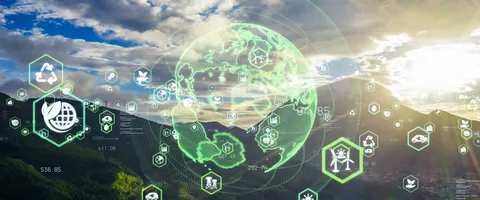Introduction
Artificial Intelligence is often portrayed as a disruptive technology that threatens jobs or raises ethical concerns. Yet beyond the risks lies a powerful truth. AI has the potential to be a force for good. From improving healthcare access to accelerating climate action AI is already contributing to solutions for some of the worlds most pressing problems.
This article explores how AI for Good initiatives are driving progress across global challenges such as health education climate poverty and humanitarian aid.
AI in Healthcare
AI is transforming healthcare by making it more accessible accurate and personalized.
- Disease Diagnosis AI systems analyze X rays MRIs and pathology slides to detect diseases such as cancer earlier and with greater accuracy
- Drug Discovery Machine learning accelerates the development of new treatments by predicting how compounds interact with diseases
- Telemedicine AI chatbots and virtual assistants provide primary healthcare advice to patients in remote areas
- Pandemic Response During global outbreaks AI has tracked infection rates and modeled the spread of disease to aid government responses
AI for Climate and Environment
Climate change is one of humanity greatest challenges. AI offers powerful tools for mitigation and adaptation.
- Energy Optimization Smart grids and AI powered systems reduce energy waste in cities and industries
- Climate Modeling AI enhances prediction models for weather storms and long term climate changes
- Conservation Computer vision identifies endangered species and monitors ecosystems through drones and satellites
- Carbon Capture Machine learning improves research into carbon capture and storage technologies
AI in Education
Education is key to opportunity and AI can make learning more accessible and effective.
- Personalized Learning Adaptive platforms tailor content to individual students strengths and weaknesses
- Language Translation AI powered tools break down barriers for students across different languages
- Accessibility Speech to text text to speech and image recognition tools support students with disabilities
- Teacher Support AI grading systems and content generation help educators save time and focus on mentoring
AI for Humanitarian Aid
AI supports governments NGOs and aid organizations in crisis response.
- Disaster Prediction Machine learning models predict earthquakes floods and wildfires with greater accuracy
- Resource Allocation AI systems optimize the delivery of food water and shelter in disaster zones
- Refugee Support Translation tools and AI assistants provide critical information to displaced populations
- Crisis Mapping Satellite data combined with AI helps humanitarian agencies track damage and direct aid
AI in Combating Poverty
AI helps identify patterns of inequality and provides solutions for poverty reduction.
- Financial Inclusion AI powered credit scoring enables microloans for underserved communities
- Smart Agriculture AI guides farmers on crop health soil management and weather predictions
- Job Matching AI platforms connect individuals to employment opportunities based on skills and demand
- Data for Policy Governments use AI to identify vulnerable communities and design better social programs
Ethical Considerations in AI for Good
While AI creates positive change it must be deployed responsibly.
- Bias and Fairness Systems must be designed to avoid reinforcing discrimination
- Privacy AI solutions must respect data rights and protect vulnerable populations
- Accessibility AI for Good must benefit all communities not only wealthy nations
- Accountability Developers and organizations remain responsible for the outcomes of AI systems
What does AI for Good mean
It refers to the use of artificial intelligence to address global challenges such as healthcare climate change education and poverty.
How is AI improving healthcare
AI helps with early disease detection drug discovery telemedicine and pandemic response planning.
Can AI help fight climate change
Yes AI supports energy optimization weather prediction carbon capture research and wildlife conservation.
How does AI support education
AI enables personalized learning language translation accessibility for students with disabilities and teacher support tools.
What role does AI play in humanitarian aid
AI predicts disasters helps distribute resources supports refugees with translation tools and assists crisis mapping.
Can AI reduce poverty
Yes AI enables microloans through financial inclusion smart agriculture job matching and better policy design.
What are the ethical concerns in AI for Good
Bias fairness privacy accessibility and accountability are key ethical challenges.
How does AI support developing countries
AI improves access to healthcare education agriculture and financial services in underserved regions.
Is AI for Good accessible worldwide
Not yet. Wealthy nations lead adoption but global cooperation is needed to expand benefits.
What is the future of AI for Good
With ethical governance AI could become one of humanity most powerful tools for building a sustainable and inclusive future.
Conclusion
Artificial Intelligence is not only reshaping industries. It is tackling some of the biggest global challenges facing humanity. From healthcare breakthroughs to climate action and humanitarian relief AI for Good initiatives show how technology can drive meaningful progress.
The future of AI should not be feared but shaped. With careful governance ethical responsibility and global cooperation AI can become one of humanitys most powerful allies in building a more sustainable inclusive and hopeful world.


